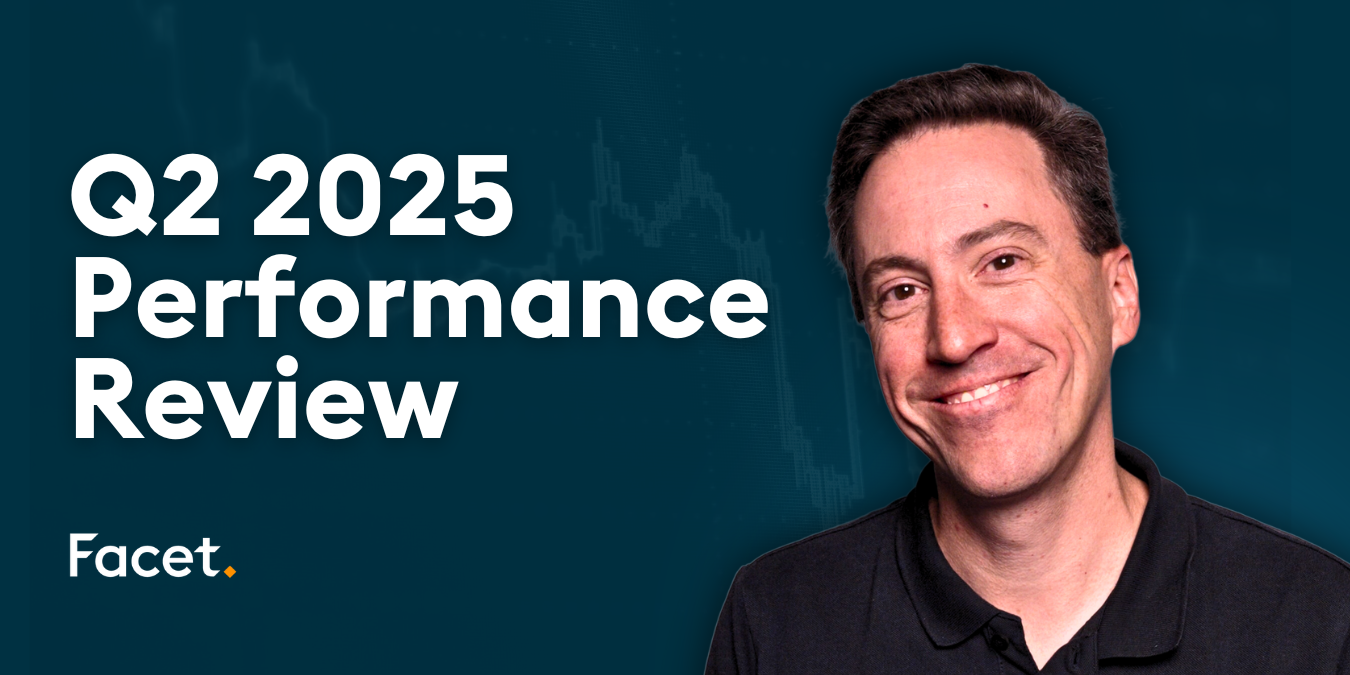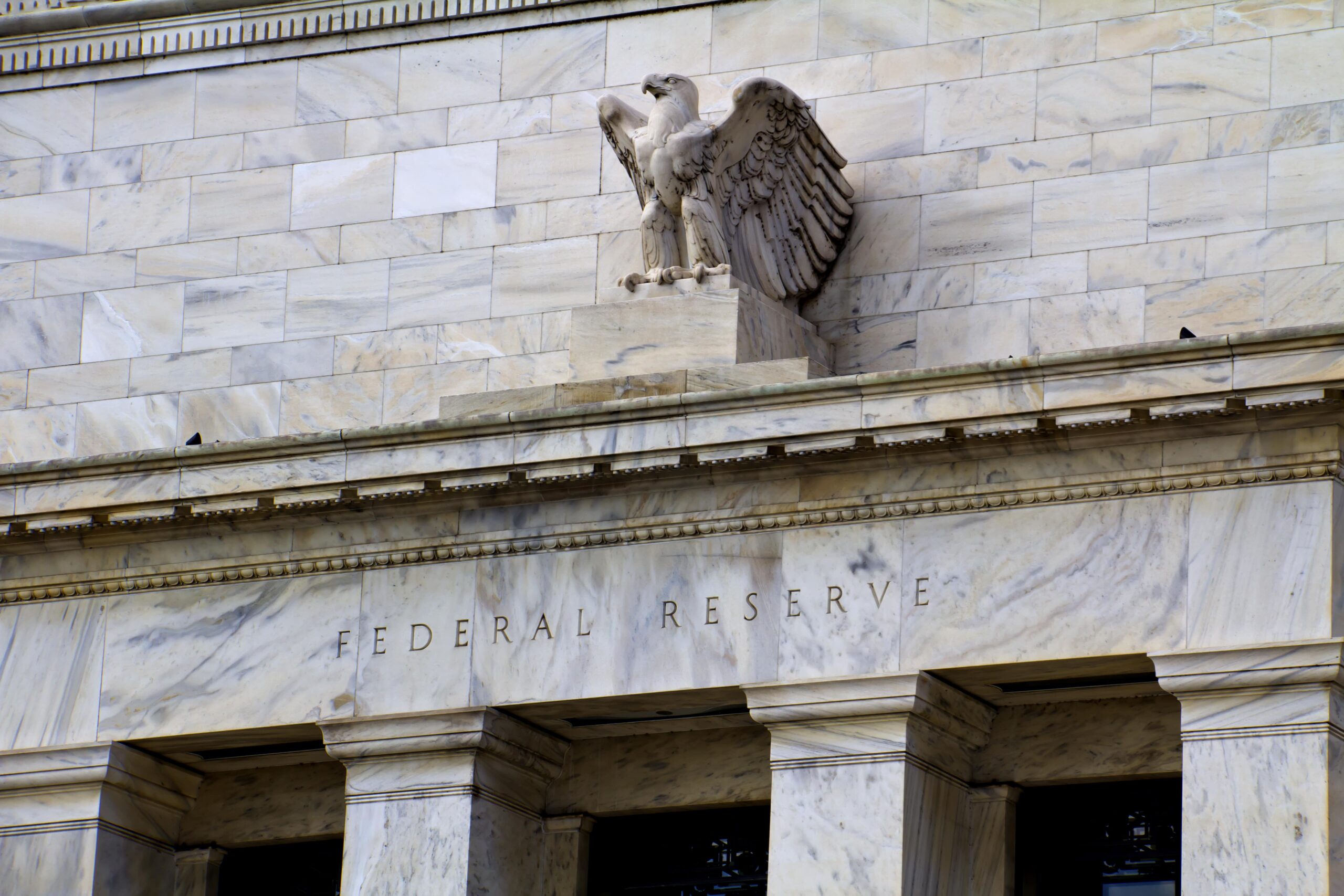
The information provided is based on the published date.
Key takeaways
- Elections don't usually move markets significantly
- For politics to affect markets, they must impact company profits
- Markets focus on what candidates can actually pass and block out any promises made
- Macro policies, like large tax cuts, matter more, and neither candidate promotes such a policy
- Myths about market impacts are often coincidences; the Fed is independent regardless of elections
- Primary market drivers remain the economy and profits
The US presidential election is just over eight months away, but the media coverage is already extremely heavy.
We are often asked about how the election will influence financial markets and, if so, whether our members should make any changes to their portfolios.
The short answer is this: politics usually only have, at most, a minor impact on markets. Read on to see why and our thoughts on this election.
Politics only matter if it impacts earnings
For anything political to matter for the markets, it has to be something that actually influences company profits. In other words, ask yourself: if this law passes, will Microsoft sell more cloud computing capacity? Will McDonalds sell more hamburgers? Will more people go see the latest Disney movie?
If you approach it this way, you'll see that most legislation that gets hotly debated has little impact. A lot of the key issues being highlighted by this election, like crime, education, and immigration, don't have much of a connection to actual business activity.
Even when there is some kind of connection between politics and business, it is often small. For example, Microsoft won a big defense contract in 2019 worth as much as $10 billion.
Clearly, this was a controversial deal because it highlighted how government decisions can influence company profits. However, that $10 billion would be realized by Microsoft over ten years, or one billion a year.
That's not a lot of money relative to the sheer size of the company. Microsoft had over $62 billion in revenue just last quarter. So, this contract was worth around 0.4% of the company's revenue. In other words, it doesn't move the needle.
Beware of partisan rhetoric
Politicians tend to talk in hyperbole, saying things like, "My opponent's policy will ruin our economy." It is easy to get wrapped up in this. But bear in mind that the US economy is enormous and dynamic and that American companies have thrived in all kinds of political environments.
Say one candidate is campaigning on increasing government regulation in some manner, and another argues that the economy is already too regulated and more restrictions will only hurt businesses.
As a citizen, you may have your own preference between these two, but as an investor, you should be skeptical that either will matter much to you.
Big companies are used to shifting regulatory regimes. They have large legal and compliance teams that help them navigate changes with as little impact as possible. They also use expensive lobbyists to try to blunt the impact of changes on their own industry. By the time this is all said and done, it might increase the company's costs by some fraction to comply with the new regulations, but the change is so small that it does not have any perceptible impact on share prices.
Watch out for other tactics politicians use to make their argument sound more dire than it is. For example, they throw around big dollar amounts when talking about the impact of some policy. Remember that the size of the US economy is almost $28 trillion. $100 million or $10 billion might seem like massive numbers, but they're actually nominal in the grand scheme of things.
The market will focus on what can get done, not what a politician says
It is safe to say that politicians have a reputation for stretching the truth. A January 2024 Gallup poll on perceived ethics by profession rated "Members of Congress" as the least trustworthy profession, just under car salespeople, stockbrokers, and lawyers.

Source: Gallup
Markets know this, too, discounting anything we hear from political candidates on the campaign trail.
Candidates promise all kinds of things that they don't wind up doing. It may even be that the candidate had every intention of executing on some promise, but circumstances prevented it.
Maybe there wasn't support in Congress, or perhaps some emergency changed the priorities.
Regardless, markets are going to focus on what a presidential candidate will truly get done, not just what they promise. Hence, even if Donald Trump or Joe Biden were to promise something that would impact company profits expressly, markets are going to assess if the candidate will actually get that done.
Legislation has always been challenging to pass, but lately, Congress has been closely divided, meaning neither party has had large majorities. This makes it challenging to get enough votes for any legislation, especially given the filibuster rules in the Senate.
While we can't know which party might control each house of Congress, most pundits expect the divide between parties to remain close, so passing legislation will remain challenging.
Thus, the markets will heavily discount anything these Presidential candidates promise.
First, they may fail to follow through on their commitments. Second, even if they do pursue it, they might not be able to pass it through Congress. Or the final version might be watered down from what was originally promised.
What might the market care about?
All of the above isn't to say that politics never matter to markets. Rather, the impact is usually much more limited and unpredictable than people often think.
Small-scale factors
Things like budget allocations can matter to individual companies. For example, defense contractors would benefit if the US increased military spending. Facet doesn't try to pick individual stocks, but if we did, this would be something we'd need to consider.
Even this can be tricky to get right, though. A simple example would be to look at the performance of defense stocks since Russia invaded Ukraine in February 2022. Since the day after the invasion through February 16, 2024, the iShares Aerospace and Defense ETF has returned 9.3%. That's only slightly better than the overall S&P 500, which is up 8.7%.

Source: Yahoo Finance
So despite the US giving $47 billion in aid to Ukraine, with another $60 billion potentially coming in pending legislation, defense stocks have performed about the same as the overall S&P 500.
This demonstrates how tricky it is to pick stocks based on legislation. If you felt that one of the presidential candidates was more likely to increase military spending than the other, you'd first have to get the winner of the election right. Then you'd have to be sure they would actually get Congress to increase the defense budget.
Even if you get all that, as the illustration above shows, your excess return might be small. It could even be that the stocks you buy do rise in price, but not as much as some other stocks. All of that is a lot to get right.
Large-scale factors
There are also macro-level policy decisions that can affect markets. In recent years, Donald Trump's corporate tax cuts in 2017 and Joe Biden's fiscal stimulus in 2021 were both meaningful market movers. These are good examples of comprehensive policies markets would care about. Both decisions placed a large amount of money directly in the hands of companies (corporate tax cuts) and consumers (fiscal stimulus).
It does not appear that either 2024 candidate has anything on that scale as part of their platform. Moreover, today's political environment would make a large tax cut much harder to enact.
We are often asked if the market would prefer one candidate over the other. In the past, when the market had a clear preference, it was because one candidate was more likely to pass something like a large tax cut or a big spending package. If neither is pursuing such a thing or the market judges that the package wouldn't get passed by Congress, then the market will likely act indifferent to the candidates.
Debunking common myths about markets and elections
A lot of myths are commonly circulated about elections and markets. Some of these are coincidences. If you run enough numbers in enough permutations, you can find what might appear to be a correlation.
For example, you might hear that the market has done better when Democrats are in the White House. This is true, at least if you go back to Ronald Reagan's 1981 inauguration. Since then the S&P 500 has been up 8.33% annualized with GOP presidents vs. 15.43% with Democrats.

Source: S&P Dow Jones Indices
We don't think there's anything to this disparity, though. George W. Bush entered the White House just before the internet bubble crashed in 2001, something he didn't cause. The period from 2001-2003 was the worst three years for the market since the Great Depression.
Meanwhile, Barack Obama took over just as the Great Financial Crisis was ending, so he got "credit" for a huge rebound starting in 2009, even though most of the rescue efforts were orchestrated by the Federal Reserve and Treasury in 2008 before Obama took office.
The point here is that these kinds of numbers are probably more coincidences of timing than anything to do with actual policies by one party or the other. We would assign zero predictive value to this kind of analysis.
Another recurring myth is that the election calendar will influence the Fed somehow. This assertion is particularly peculiar as it blatantly contradicts historical facts.
The Fed has made some kind of change in their rate target in all but two election years since 1990. It hiked or cut rates during the meeting just before the 1992, 2004, and 2008 presidential elections.
There's really no evidence that the Fed worries much about the election date when making decisions. If anything, the Fed goes out of its way to maintain consistent policy moves up to election day to avoid appearing political. We would expect the same in 2024. If rate cuts make sense based on the data, expect the Fed to cut, regardless of the election.
Primary vs. secondary factors
One of the keys to making successful investment decisions is the ability to separate primary factors from secondary factors. When it comes to the stock market, the primary driver will always be the economy's health: the speed at which companies are growing profits, the outlook for future profits, and so on.
It is possible that whoever wins the November election will enact some new policy that matters for the economy or individual companies. But even if this happens, it will almost assuredly be a secondary factor at best.
We know a lot of people will feel passionate about their candidate this November. You may believe strongly that the country will be better off if one party wins and worse with the other. However, we encourage you to avoid letting that influence your investment decisions. How the presidency will impact the economy is extremely hard to predict, whereas US companies have shown themselves to be dynamic, adaptable, and resilient as a whole. We'd rather bet on the latter than worry too much about politics.
Tom Graff, Chief Investment Officer
Facet Wealth, Inc. (“Facet”) is an SEC registered investment adviser headquartered in Baltimore, Maryland. This is not an offer to sell securities or the solicitation of an offer to purchase securities. This is not investment, financial, legal, or tax advice. Past performance is not a guarantee of future performance.


